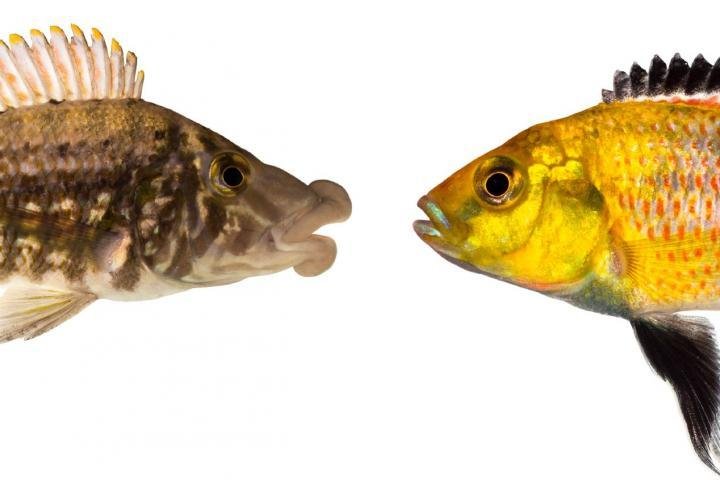East Africa's Lake Tanganyika ecosystem and its cichlid fish represents one of the densest regions of biodiversity on Earth. The ecosystem is home to several hundred cichlid species. Photo by Wolfgang Gessl
Aug. 8 (UPI) -- New research confirms hybridization is a boon for evolution.
Similar species sharing habitat sometimes mate. If they're genetically compatible, these species can spawn hybrids. According to hybrid swarm theory, interbreeding among hybrid species and parent species can yield divergent populations.
Until now, scientists have struggled to study and confirm the theory in the wild.
Enter cichlid fish, a diverse fish family. To better understand hybrid swarm theory, scientists analyzed cichlid living in East Africa's Lake Tanganyika ecosystem. There are 1,900 cichlid species worldwide, and several hundred are found in Tanganyika.
Scientists collected DNA samples from dozens of species, and used advanced genomic sequencing methods to analyze 500 different fish genes. By tracing genes linked with different attributes across different lineages, scientists were able to determine factors driving species radiation, speciation, on the cichlid family tree.
The data, detailed this week in the journal Nature Communications, showed hybridization between local lineages and colonizer lineages accelerated the process of ecological innovation, or specializing, and triggered speciation.
Researchers found the flow of some genes across lineages was more likely to yield hybridization and new species, including genes controlling coloration and jaw structure.
"It is those characteristics that are exposed to selection that are responsible for the development of new species," Christian Sturmbauer, researcher at the University of Graz in Austria, said in a news release.
Scientists have previously used molecular clock analysis to chronicle the history of radiation among Lake Tanganyika cichlids, but the results remained at odds with the geological history of East Africa.
The latest findings allowed researchers to match up the timing of cichlid diversification with major geological events, like the continental split of southern Gondwana and the sinking of the East African Rift Valley.
"These findings may help us understand, for example, ongoing changes induced by climate change in the animal kingdom," said Sturmbauer.















